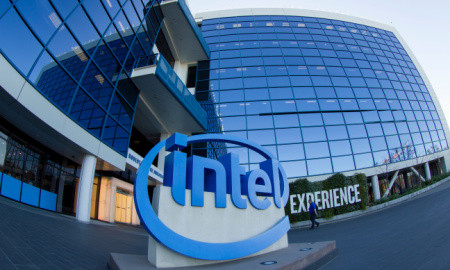Sign up for our free daily newsletter
YOUR PRIVACY - PLEASE READ CAREFULLY DATA PROTECTION STATEMENT
Below we explain how we will communicate with you. We set out how we use your data in our Privacy Policy.
Global City Media, and its associated brands will use the lawful basis of legitimate interests to use
the
contact details you have supplied to contact you regarding our publications, events, training,
reader
research, and other relevant information. We will always give you the option to opt out of our
marketing.
By clicking submit, you confirm that you understand and accept the Terms & Conditions and Privacy Policy
The US Court of Appeals for the Federal Circuit (CAFC) has thrown out a jury verdict that had chipmaker Intel in line to pay $2.18bn in damages to patent holding company VLSI for infringing two of its patents — one of the largest ever patent damages awarded.
The decision, handed down on 4 December by circuit judges Alan Lourie, Timothy Dyk and Richard Taranto, did agree with some of the jury verdict from the US District Court for the Western District of Texas in March 2021, affirming infringement of one patent (the ‘373 patent) covering the memory and processing of integrated circuits. However, the judges reversed the jury finding of infringement of the second patent (‘759).
CAFC has also vacated the damages award for the ʼ373 patent and remanded it for a new trial limited to damages.
In reversing the finding of infringement of the '759 patent, the appeals court agreed with Intel’s argument that VLSI’s doctrine of equivalents theory to prove infringement was “legally insufficient”.
In the US, the doctrine is sometimes invoked in infringement actions if the accused product does not literally infringe a patent invention but does so under the doctrine of equivalents.
In May, the US Patent and Trademark Office's Patent Trial and Appeal Board (PTAB) had already found the ‘759 patent invalid for obviousness. The PTAB-instituted trial found that all seven challenged claims were unpatentable due to obviousness and it denied the patent owner’s motion to exclude.
VLSI was represented by MoloLamken’s Jeffrey A Lamken, Rayiner Hashem and Michael Gregory Pattillo Jr and Irell & Manella’s Morgan Chu, Benjamin W Hattenbach, Alan J Heinrich, Amy E Proctor, Dominik Slusarczyk, Charlotte J Wen and Babak Redjaian.
Intel was represented by Wilmer Cutler Pickering Hale and Dorr’s William F Lee, Alison Burton, Lauren B Fletcher, Joseph J Mueller, Steven Jared Horn, Amanda, L Major and Mary Virgina Sooter.
Email your news and story ideas to: [email protected]









